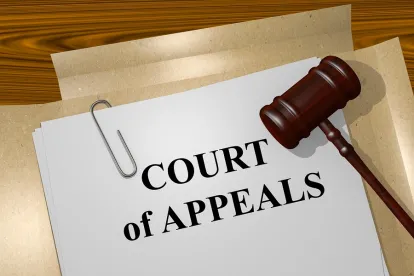In 2008, the West Virginia Supreme Court refused to hear appeals in the Tawney and Wheeling Pitt cases, cases that garnered national headlines as two of the five largest jury verdicts in the United States that year. The Court's refusal to consider these appeals without any explanation shocked many, and it highlights the fact that, unlike virtually every other state, there is no automatic right to have a judgment in a civil or criminal case substantively reviewed by an appellate court in West Virginia.
The criticism that followed the Court's refusal to consider these appeals led Governor Manchin to appoint an "Independent Commission on Judicial Reform" to review West Virginia's court system. The Commission found, among other things, that West Virginia needs an intermediate court of appeals. The Commission recognized that our Supreme Court of Appeals is already one of the busiest in the Nation, and an intermediate appellate court would lighten its workload. It also would serve two other important purposes. It would ensure that litigants are afforded the opportunity to have their cases substantively reviewed on appeal, thereby bolstering public confidence in our judicial system, and the decisions of that court also would establish the legal precedent that would, in turn, provide certainty regarding how our laws would be applied going forward.
Surprisingly, the Supreme Court opposed legislative efforts to create this court. It has, instead, attempted to address the concerns that led to the Commission's recommendation by proposing revisions to the procedural rules governing appeals. These proposed changes, according to the Court, will ensure that every appeal is completely and carefully reviewed by the entire Court and disposed of in a decision on the merits.
Unfortunately, the proposed rules, in the opinion of many, fall short. While they do provide that each appeal will be disposed of either by means of a "full opinion" or a "memorandum decision," the distinction between the two is critical. As Chief Justice Davis recently noted, a court speaks only through its opinions, and it is these opinions that provide the bases for a court's decision and establish the precedent that individuals and businesses can rely upon for guidance in conducting their affairs in West Virginia.
Under the proposed rules, "opinions" issued by the Court fulfill both of these functions. Such would not be the case, however, with respect to cases disposed of by "memorandum decisions." These decisions would have "no precedential value" and could not be cited as legal precedent anywhere. Indeed, they are not to be published in the West Virginia Reports. Once rendered, it would be as if they never happened and those living and working in West Virginia would be unable to rely on those decisions, even if made of them, for guidance in terms of conforming their activities to the law of the state. In other words, the rationale contained in memorandum decisions cannot be cited, relied upon, or applied by any other individuals or set of facts and would have no binding effect on any future court, including the Supreme Court itself, if called upon to rule upon the same or similar set of facts.
What is the practical effect then of these proposed rules? With deference to the obvious effort that has been devoted to drafting these rules, their practical effect appears to be minimal. In cases where the Court is disinclined to render an "opinion", rather than denying a petition without explanation, the Court may simply issue a memorandum decision that says no more than that it "finds no substantial question of law presented by the appeal and does not disagree with the decision of the lower tribunal." Such a decision would provide little if any, additional insight into the reasoning of the Court beyond that afforded by the current procedure.
West Virginia has long had a reputation as an unfavorable forum for corporate defendants. Whether deserved or not, the refusal of our highest court to meaningfully consider extraordinary judgments such as those rendered in the Tawney and Wheeling Pitt cases only serves to deepen that perception. West Virginia's businesses have no desire to wait until a lawsuit is brought or a verdict rendered to have questions of law governing their conduct answered. To the extent there are ambiguities in our laws, our court system should interpret these laws in a way that clearly establishes parameters for future conduct and publish them. In order to do so, given the current workload of our Supreme Court, the only way that is likely to occur is through the establishment of an intermediate appellate court to which litigants have an automatic right of appeal. Our Supreme Court can then focus its resources on addressing those cases which, after having been reviewed by the appellate court, warrant additional consideration because of the scope of their application or their importance on a statewide basis.




 />i
/>i
